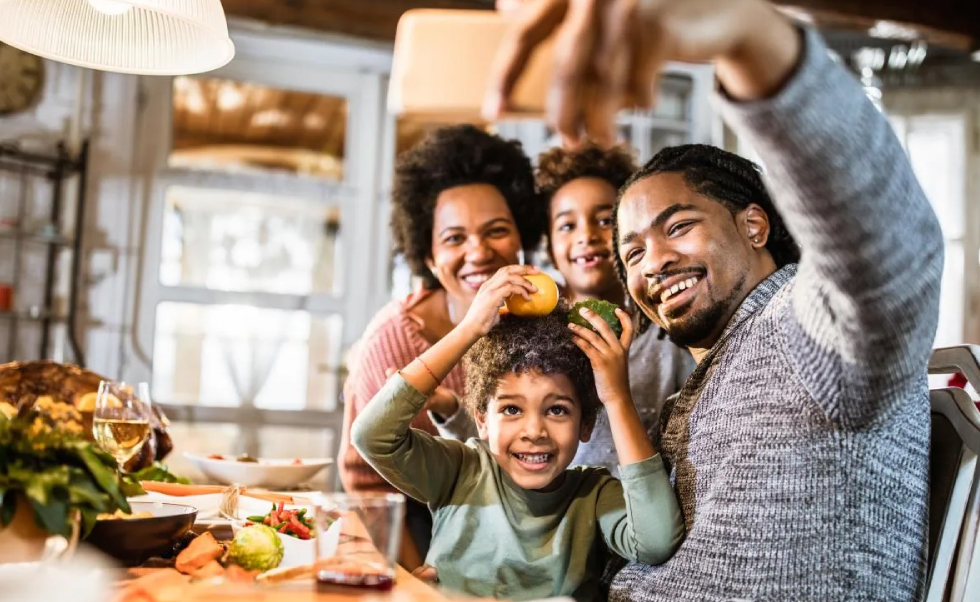Family traditions and rituals significantly shape our lives, providing a sense of identity, continuity, and belonging. These practices are particularly vital in India, where cultural diversity is vast and deep-rooted. For parents, especially mothers, understanding and maintaining family traditions can benefit their children and the family. This blog explores the importance of family traditions and rituals for Indian parents and provides practical advice for current and upcoming mothers on incorporating these practices into their daily lives.
The Benefits of Family Traditions and Rituals
1. Creating a Sense of Identity
Family traditions and rituals help children understand their heritage and culture. They provide a sense of identity, allowing children to connect with their roots and feel a part of something larger than themselves.
- Cultural Awareness: Engaging in traditional practices like festivals, ceremonies, and customs teaches children about their cultural history and values.
- Personal Identity: Knowing where they come from helps children build a strong sense of self, which is crucial for their emotional and psychological development.
2. Strengthening Family Bonds
Rituals and traditions foster a sense of togetherness and unity within the family. They create shared experiences that strengthen relationships and promote family cohesion.
- Quality Time: Participating in family traditions allows for quality time together, away from the distractions of daily life.
- Shared Memories: These activities create lasting memories that family members can remember fondly, reinforcing the family bond.
3. Providing Stability and Comfort
In today’s fast-paced world, children can benefit greatly from family rituals’ stability and comfort. These practices offer a predictable structure that can be particularly reassuring for young children.
- Routine and Structure: Regular traditions like bedtime stories or weekend meals create a sense of routine and predictability.
- Emotional Security: The consistency of family rituals can provide a sense of security, helping children feel safe and grounded.
4. Teaching Values and Morals
Family traditions are often centered around moral and ethical teachings. They are a way to pass down important values and lessons to the next generation.
- Moral Lessons: Stories, festivals, and customs often come with underlying moral lessons that children can learn from.
- Respect for Elders: Rituals that involve respecting and honoring elders instill values of respect and gratitude in children.
5. Celebrating Cultural Diversity
In a country as diverse as India, family traditions and rituals are a way to celebrate and embrace cultural diversity. They help children appreciate and respect different cultures and traditions.
- Cultural Festivals: Participating in various cultural festivals exposes children to different traditions and ways of life.
- Inclusivity: Teaching children to respect and celebrate other cultures fosters inclusivity and open-mindedness.
6. Enhancing Social Skills
Family traditions often involve gatherings and social interactions, providing children with opportunities to develop social skills.
- Communication: Participating in family gatherings helps children learn how to communicate and interact with others.
- Etiquette: Traditional practices teach children important social etiquette and manners.
Practical Tips for Incorporating Family Traditions and Rituals

1. Celebrate Festivals Together
Indian festivals like Diwali, Holi, Eid, and Christmas offer perfect opportunities to create lasting family traditions. Involve your children in the preparations and celebrations to make them feel a part of the festivities.
- Preparation: Include children in decorating the house, cooking traditional foods, and preparing for the festival.
- Stories: Share stories and the significance of each festival to impart cultural knowledge and values.
2. Create Daily and Weekly Rituals
Incorporate small daily or weekly rituals that can become a cherished part of your family’s routine.
- Daily Rituals: Morning prayer, evening family meals, or bedtime stories can become comforting daily rituals.
- Weekly Rituals: Plan a weekly family game night, movie night, or a special weekend breakfast tradition.
3. Honor Life Milestones
Celebrate important life milestones with traditional ceremonies and gatherings. This makes the occasion special and teaches children the importance of honoring significant moments.
- Birthdays and Anniversaries: Celebrate these occasions with traditional rituals and involve children in the preparations.
- Cultural Ceremonies: To keep traditions alive, participate in cultural ceremonies like naming ceremonies, thread ceremonies, or weddings.
4. Involve Children in Cultural Practices
Encourage children to participate actively in cultural practices and rituals. This hands-on involvement helps them learn and appreciate their heritage.
- Religious Practices: Involve children in religious practices and rituals, explaining their significance and meaning.
- Cultural Arts: Encourage children to learn traditional arts, music, and dance forms to connect with their cultural roots.
5. Adapt Traditions to Modern Life
While maintaining traditional practices, it is important to adapt them to fit modern life. This ensures that traditions remain relevant and meaningful for the younger generation.
- Modern Twist: Give traditional practices a modern twist to make them more appealing and accessible to children.
- Flexibility: Be flexible in your approach to traditions, allowing for adjustments that suit your family’s lifestyle and preferences.
Closing up!
Family traditions and rituals are invaluable in providing children with a sense of identity, stability, and belonging. For parents, these practices are a way to connect with their cultural heritage and impart important values and lessons to their children. By celebrating festivals, creating daily rituals, honoring life milestones, involving children in cultural practices, and adapting traditions to modern life, parents can ensure that these traditions remain vibrant and meaningful for future generations. Embracing family traditions and rituals enriches family life and helps raise well-rounded, culturally aware, and emotionally secure children.







